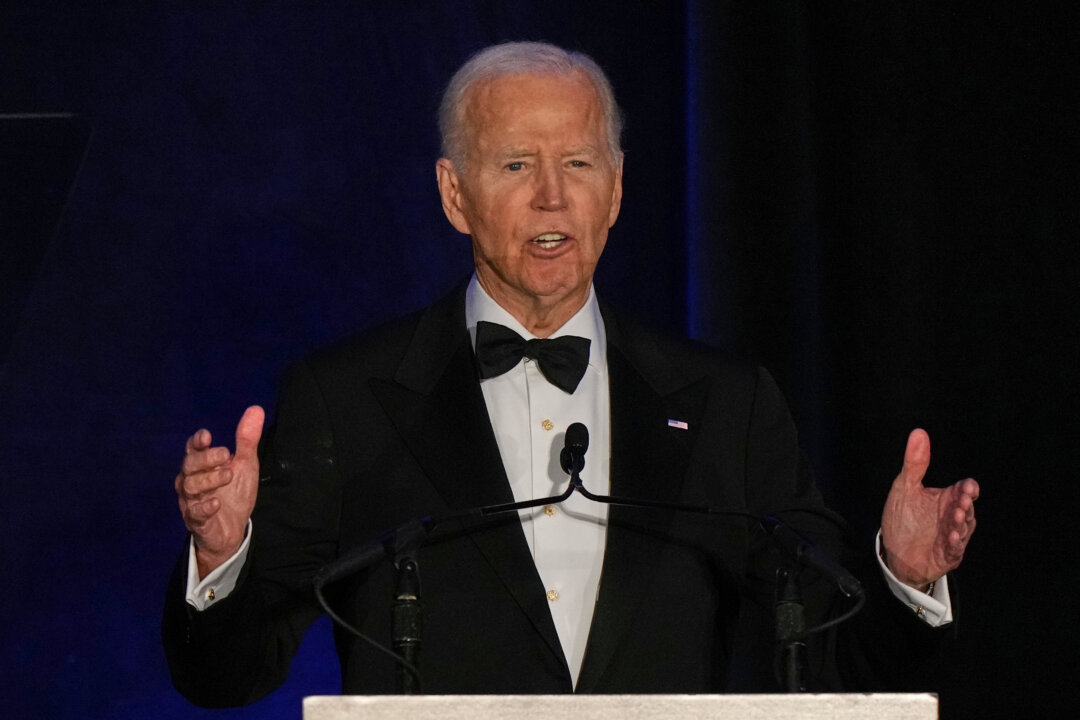There is some truth to the idea that people just post whatever online.
I do it constantly across platforms myself: random shower thoughts, sentence fragments that strike me as funny in the moment, an image that comes to me out of nowhere, like divine inspiration. Sometimes friends show me screenshots of things I wrote not half an hour ago, and I can’t remember having written them. That may sound worrisome, or irresponsible, and, frankly, it is. But it’s also the reality of heavy internet use.
We express ourselves in real time, all the time, often only half-aware of what we’re saying. So, when someone makes a Hitler joke on X or drops slurs in a private Discord server or group text, there is a real question about what these people are actually saying. Are these statements genuine expressions of belief? Is it “edgelording,” or provocation for its own sake? Are they “just joking around,” as is so often the excuse?
There’s no clear answer to those questions, or to what the right response should be. Blanket moral outrage and exposure campaigns don’t work — and probably don’t help create the kind of world we’d actually want to live in, with further encroachment on free speech. But this behavior shouldn’t be ignored and it certainly isn’t disappearing, either. In fact, it’s likely to intensify as the internet keeps eroding the norms that once held such extremes at bay.
This week, POLITICO reported the existence of more than 28,000 Telegram messages from a group chat of Young Republicans. Bobby Walker, then vice chair of the New York State Young Republicans, warned months earlier, “If we ever had a leak of this chat we would be cooked fr fr.” That awareness did not stop messages like, “Great. I love Hitler,” from being sent. Other messages included gas-chamber jokes, repeated variations of the n-word and comments describing Black Americans as “the watermelon people.”
Members of the chat held or sought real political power. They knew the stakes. They also knew that the chat could be exposed, and that exposure would be catastrophic for their reputations and perhaps for the reputation of the GOP. Yet that knowledge did not penetrate deeply enough to change their behavior.
The will to post overrode any sense of self-preservation, as it so often does.
Much of the language in that chat likely existed in a space between jokes, random nonsense and real belief. Many of the participants may have been posturing. It’s neither flattering nor comfortable to acknowledge, but the reality is that a lot of people use so-called “gamer words,” that is, slurs, in the privacy or assumed privacy of group chats. They’re testing boundaries and signaling group membership. Sometimes, it’s an act of rebellion against the moral surveillance and censoriousness of the “Woke era.” Other times, it’s a loyalty test: Will you laugh along or become the killjoy who ruins the vibe?
Can you be trusted, or will you act like a “hall monitor?”
Some people on the right have disavowed these chats. Vice President JD Vance downplayed the messages as stupid jokes from “kids” (it’s worth noting, many of them are in their 20s and 30s). Other conservatives are appalled that we’re judging people on what they say in private at all — at least partially to avoid joining a “left-wing pile on.”
I feel a kind of tenderness toward this impulse. We are emerging from a decade-long moment where long forgotten tweets could end your participation in public life, or at least, public life on your preferred side of the political aisle. The internet’s appetite for punishment is endless, and the threat of exile — until relatively recently — was constant. Under those conditions, “us versus them” is seen as a vital form of self-preservation. To defend your own becomes an act of survival, not aggression. The principle of never joining a left-wing pile on, of never punching to your right, makes sense from a social, psychological and emotional perspective.
But to those people, I also want to ask: When do we pass judgment? When do rules for decorum apply, and who is immune to those rules? Would these same messages be acceptable in a workplace Slack? In official White House communications? Between two friends, just shooting the shit, where neither party is offended by the jokes being made?
It should go without saying that a private exchange between two friends is different from a group chat among dozens of political operatives. It is also different from “voicing earnest, violent intentions,” as right-wing publisher Jonathan Keeperman put it. Not every offensive, or even hateful, joke or comment is created equally. But the Young Republicans’ Telegram chat was not just a casual, friendly space of buddies hanging out. It was a semi-official hub for people with or seeking public responsibilities. A racist joke between friends remains within a narrow social frame, however tasteless it may be. The same joke in a large chat full of people working in politics changes its meaning.
The deeper issue is that the internet has dissolved many of the boundaries, hierarchies and cues that once helped us determine what is and isn’t appropriate and — maybe even more critically — when and how to tell the difference between sincerity and performance.
Because digital boundaries are porous, this kind of talk does not stay contained, either. Rhetoric that begins as private banter often migrates outward. The Anglophone internet, for all its linguistic and subcultural differences, now functions as a continuous environment where ideas (and maybe more saliently, memes) move freely. It is an ocean. What appears in niche subcultures soon circulates through Reddit, X, Instagram and TikTok. There’s no conspiracy afoot, as some have suggested.
Memes just travel — and for all sorts of reasons — that’s the internet.
And the cycle accelerates when major political actors and institutions adopt similar tones. When the White House itself deploys rhetoric that would have been unthinkable in previous administrations, it signals that norms are in flux, that there’s no shared understanding of what social etiquette should apply or who should be held to them. This is how fringe rhetoric becomes normalized.
Normalization produces another phenomenon: strategic ambiguity, which works in multiple ways.
Sometimes people with genuinely extreme beliefs use humor to neutralize their positions. You yourself might be “joking” about Hitler; the person you’re talking to might be joking and genuinely subscribe to a hateful ideology. But it works in another direction, too. Someone might joke about hating all immigrants when their actual position is wanting stricter border enforcement. In both cases, the ambiguity serves the same function: It allows people to test boundaries, find allies, avoid accountability.
When every statement can be dismissed as either “just a joke” or “taken out of context,” sincere communication becomes nearly impossible to distinguish from performance. It also makes it difficult to understand the boundary between actual extremism and juvenile provocation.
Meanwhile, irony and belief reinforce one another. What begins as mockery can harden into conviction. The user who once posted to get a rise out of people may, over time, adopt the worldview they once parodied. But it’s not as simple as “you believe what you joke about.”
Studies consistently find that the internet facilitates, though doesn’t cause, extremism by amplifying exposure, accelerating feedback loops and collapsing distance between believers. While most people who encounter extremist content never act on it, digital platforms make radical ideas appear more widespread and socially endorsed than they actually are. This matters because people act on perceived consensus as much as on personal conviction.
My intuition is that if more of these exchanges took place face to face, some of the ugliness might soften. It is one thing to type a slur into a void and another to hear your own voice saying it to a person standing a few feet away.
I once interviewed a white supremacist — a self-identified Nazi — who told me he had never actually said the n-word out loud until our interview. When he finally heard himself say it, he was disgusted. We spoke twice more after that, and over time, he completely renounced white supremacism. He had been, in his own view, “internet poisoned,” and having to explain his beliefs to somebody outside of that world, in a sense, de-radicalized him. This is an exceptional situation — specific to this particular individual’s circumstances. But there’s also a lesson there, one we can extrapolate to much less extreme situations, especially with all we know about the internet and disinhibition.
If people had to look others in the eye while saying vile things, if they had to hear their own voices speaking hatred aloud, much of this rhetoric wouldn’t exist. Screens create distance, and distance changes moral calculus.
The internet changes our sense of who we’re speaking to and how our words land. Until we confront that shift directly, we will keep circling the same argument about whether people “really mean it.” The question misses the point. Meaning itself has become unstable because the medium blurs intention and consequence.
The Young Republicans’ Telegram archive is a mirror of that instability. Its participants knew that what they were saying was dangerous — and certainly difficult to justify to outsiders — yet they didn’t stop. Their downfall was predictable, perhaps inevitable. In today’s political environment, there’s always someone waiting in the wings to weaponize words — screenshot hoarders, archivists of discontent.
Maybe the real solution is to move these chats offline, period — and watch them disappear.
.png)















 English (US)
English (US)